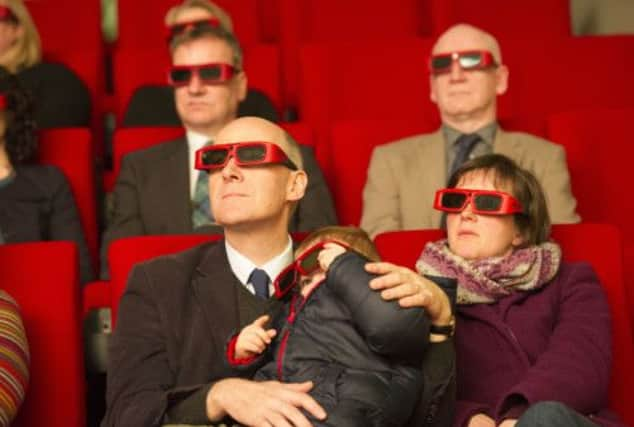Movie houses having to move with the times


A bus was hired and after a journey down the A9, some of Scotland’s most northern Twilight fans, not to be denied a healthy eyeful of Robert Pattinson and Taylor Lautner, were sated at Vue in Inverness.
It was quite a different story when Part 2 came out last year. Rob Arthur, owner of the newly-reopened Thurso Cinema, knew the story of the Breaking Dawn pilgrimage. After canvassing local opinion, he booked a midnight slot that brought 200 people in for the film’s first showing.
Advertisement
Hide AdAdvertisement
Hide Ad“It really was fantastic, because although there had been some feedback, we really didn’t know how many people would show up,” Arthur said.
Until recently, a small, remote cinema like Thurso would have to wait weeks before getting access to a popular new release. The film reels of traditional distribution would have been sucked up by the multiplexes, with copies only becoming available as they cut down on the number of screens showing the same film.
New digital technology has bypassed that, giving all an equal crack at new releases.
Ron Inglis, industry consultant at Mayfield Arts & Media, says another critical element is digitisation has allowed smaller cinemas to diversify. The same screen can now show children’s films in the morning, teen flicks in the afternoon and adult shows at night.
“Instead of showing the same film all day every day for a full week, a small rural cinema can now show half a dozen films a week,” Inglis said.
While the ability to diversify is proving invaluable for some smaller cinemas, it does still come at a price. West Coast Cinemas, which runs The Waterfront in Greenock and The Studio in Dunoon, ran up a bill of nearly £400,000 to convert six screens in April.
West Coast Cinemas partner David Shaw says despite the improved picture quality, it’s only been possible to increase ticket prices on 3D films. Like most cinema operators, West Coast is paying for the new equipment through the Digital Funding Partnership, a financing arrangement backed by the distribution industry.
On the plus side, Shaw says that in addition to access to a wider range of films, smaller venues are now able to screen so-called “alternative content” such as live concert, theatre and opera performances.
Advertisement
Hide AdAdvertisement
Hide AdCharlotte Flower, head of the trading company that runs The Birks in Aberfeldy, said alternative content had been a “hugely popular” element of programming since the cinema’s opening in April.
Like other operators in similarly remote locations, The Birks not only screens entertainment, but also hosts gatherings. Like most cinemas large and small, the food on offer at its café-bar is an increasingly important component.
“It was very clear to us in the early stages of the project that we needed to make this a venue, and not just a cinema,” Flower said.